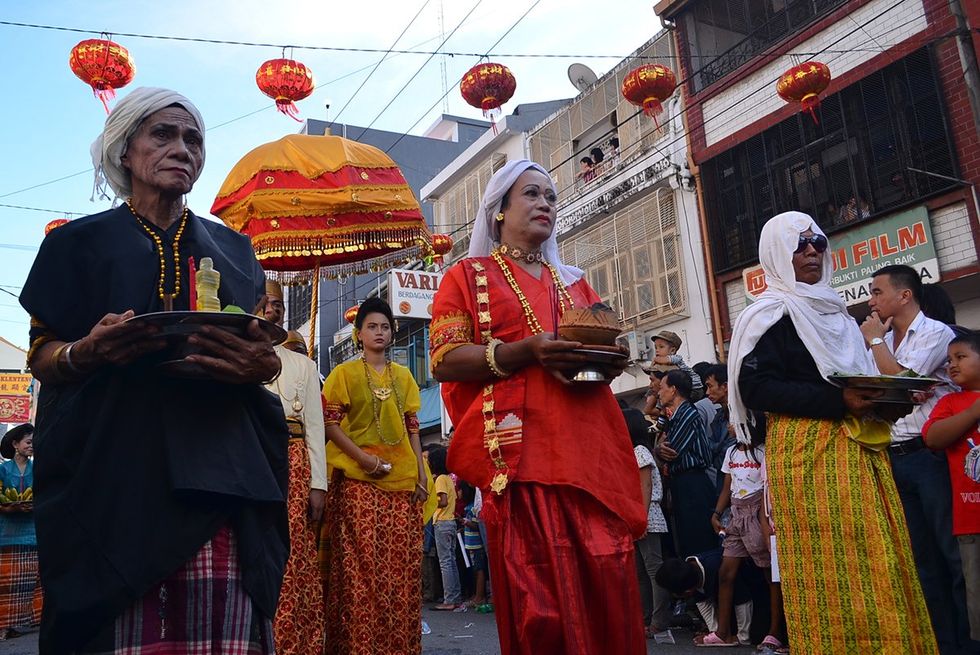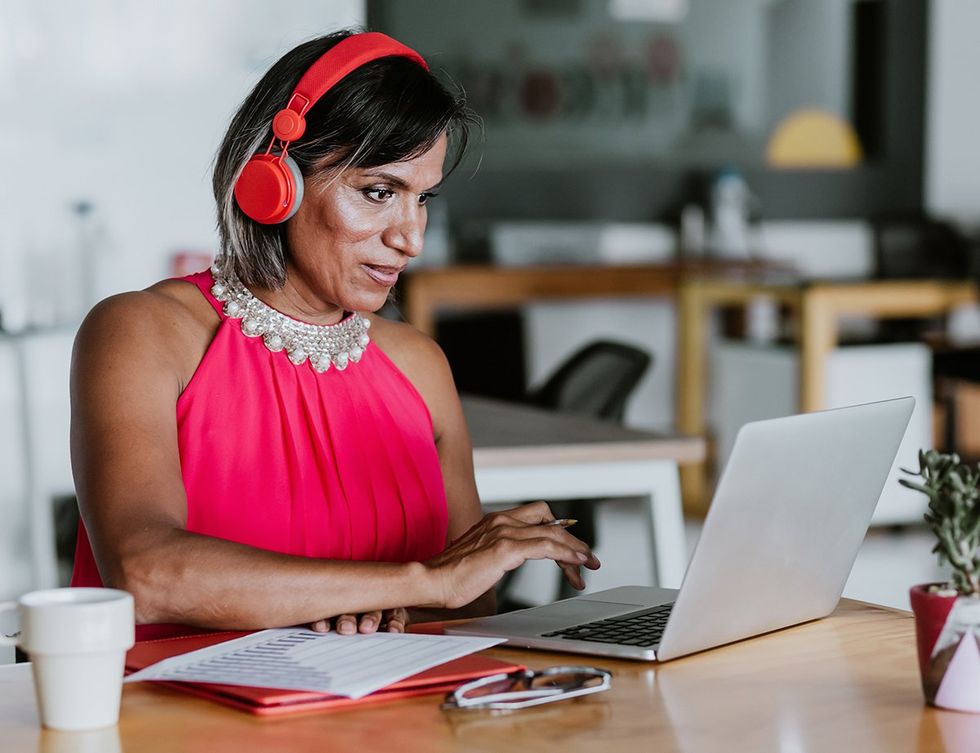Nonbinary gender identities frequently come under attack in the United States. From Elon Musk's claims that transgender people suffer from "woke mind virus" to efforts in some U.S. states to curtail access to gender-affirming care, there appears to be a perception by some that transgender people pose a novel threat to Western society.
What Musk and his peers fail to recognize is that many other cultures have long
embraced gender identities outside the Western of male or female. When we consider the cross-cultural perspective on gender, the limitations of the gender binary come into focus.
For example, India and other South Asian countries have recognized people of a third gender, hijra, for hundreds of years. Hijra are often identified as male or intersex at birth but dress and behave in typically feminine ways. The status of hijra is complicated. They are thought to have valued special abilities—such as bestowing blessings—that once gave them high status. Yet, beginning with the onset of British colonialism, hijra have few economic and professional prospects and are also at higher risk of experiencing sexual violence. Nonetheless, the existence of this category outside the gender binary challenges the notion that the concept of two genders is universal and that identities outside of the binary are somehow the result of modern ideologies.
 Stografi/Shutterstock
Stografi/Shutterstock
South Asia is not the only part of the world that endorses more than two genders. The Bugis people of Indonesia believe five genders must live in harmony together. For example, bissu are thought to combine female and male energies. While many bissu would be described as intersex in the U.S., intersex genitalia are not necessary for someone to be bissu. Instead, the experience of males and females in a single person is critical to the issue of identity. Bissu traditionally had high status because they were seen as having supernatural powers and the ability to communicate with the spirit world. As a result, they fill roles similar to those of priests or shamans. Historically, they were valued advisors to royalty. While in recent decades, bissu individuals have experienced decreasing influence and increasing discrimination, there are current efforts to maintain their traditional identity and practices.
Nonbinary genders are also embraced in what is now considered the U.S. and Canada. Many Indigenous American and First Nation peoples acknowledge third genders in which female and male are combined in a single person. The Lakota winkte are identified as male at birth, but they take on many traditional female roles.
As we see in our other examples, this third gender is viewed as having special abilities and is therefore given high-status roles related to the supernatural. Tasks such as naming infants, caring for the ill, and counseling the tribe may fall to winkte. While colonizers attempted to suppress recognition of nonbinary genders among the Lakota and others, many Indigenous American and First Person tribes have again begun to celebrate the roles of these individuals.
Although the statuses of nonbinary genders vary, we frequently see these individuals experiencing high status and being given positions of power. So why do people who fall outside the gender binary in U.S. society often face prejudice, discrimination, and violence?
In my role as a professor of psychology and gender studies, I argue that much of the hostility directed at transgender people in our society is the result of people's discomfort with the perceived violation of traditional gender roles. According to the theory of intergroup anxiety, people who have little experience with another group may fear experiencing negative emotions during interactions with them. This anxiety can include fears of being embarrassed or rejected because they do not know how to interact with individuals from this group.
 shutterstock creative
shutterstock creative
For those who are committed to the idea that females and males should have distinct roles in society, the idea of transgender individuals—who may not clearly fit into one of those categories—may make them uncomfortable. Interactions with a trans person may evoke insecurities about how they should behave and what type of behavior they should expect in return. While the discomfort experienced by cisgender individuals is not the responsibility of transgender people, understanding the source of these anxieties can be a means of reducing bias.
Research in psychology supports this theory: Numerous studies show that endorsement of traditional gender roles correlates with negative attitudes about transgender people. With this in mind, part of the solution to anti-trans bias could be the promotion of less restrictive gender roles for everyone, not just transgender people. If people don't hold firm expectations of gendered behavior, they can be open to a wide spectrum of behavior from all genders.
When we look at current attacks on the rights of transgender people in the U.S., we rarely see reference to the broad range of nonbinary genders that exists around the world. However, by considering the cross-cultural lens, we gain the potential to shift our dialogue about the nature of gender roles and expressions.
Mariah Schug, PhD, is an Associate Professor of Psychology and Chair of the Department of Gender, Women’s and Sexuality Studies at Widener University. Professor Schug conducts much of her research in the Faroe Islands, where she has considered the experiences of immigrants and the LGBTQIA+ community. In her teaching, she challenges her students to reflect on traditional concepts of gender and sexuality. She also writes for Psychology Today.
Voices is dedicated to featuring a wide range of inspiring personal stories and impactful opinions from the LGBTQ+ and Allied community. Visit advocate.com/submit to learn more about submission guidelines. We welcome your thoughts and feedback on any of our stories. Email us at voices@equalpride.com. Views expressed in Voices stories are those of the guest writers, columnists and editors, and do not directly represent the views of The Advocate or our parent company, equalpride.


 Stografi/Shutterstock
Stografi/Shutterstock shutterstock creative
shutterstock creative

































































Charlie Kirk DID say stoning gay people was the 'perfect law' — and these other heinous quotes